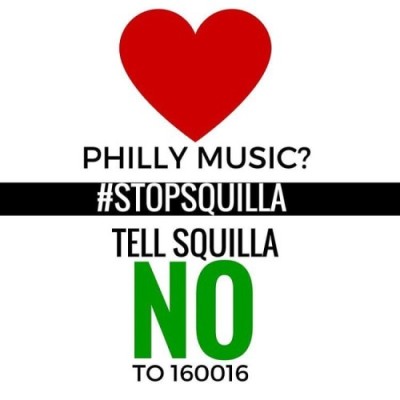Fans of live music throughout Philadelphia have had their voices heard on an insanely shortsighted proposal from City Councilman Mark Squilla (First District), but the battle is not yet over.
Billy Penn ran a story Wednesday detailing Squilla’s proposed bill that is headed to a committee meeting and would require owners of bars, nightclubs, restaurants and concert venues big and small to collect the contact information of entertainers (i.e. bands, rappers, DJs, comedians, etc.). Those names, addresses and phone numbers are then handed over to the Philadelphia Police Department to store and, ultimately, give final say on who is allowed to perform and where via a “Special Assembly Occupancy” license. Police would maintain a register and, according to the bill, weigh “crime, traffic, litter, noise, parking and hours of operation; as well as any community concerns, particularly those of neighbors in the immediate vicinity” as a basis for approving or denying shows.
The proposed bill and subsequent publicity has caused quite the stir on social media – a Change.org petition against the legislation surpassed 10,000 signatures in less than 24 hours – and Squilla has since backtracked on the language and said he would consider any amendments brought forth. He even posted a Facebook status clarifying that the primary intent was not to restrict artist expression but to close a loophole in the current legislation, which allows operators to avoid obtaining the necessary licenses when livestreaming music or playing from an iPad. Let’s just say the feedback to that post was probably not what he had in mind.
Understandably, the bill is at least partly in response to a deadly shooting in September during a rap concert at the TLA on South Street, which is within Squilla’s district. However, opponents feel the language of the bill paints too broad a brush that would have a widespread impact beyond any one particular nuisance spot.
[adinserter name=”Media Strike 1″]
Specific concerns have cited big government overstepping its bounds and violating civil liberties; administrative efforts and cost to maintain such a register; artists potentially passing over Philly, along with the associated revenue they bring in (rapper El-P already voiced his displeasure on Twitter); placing the unfair burden on owner-operators to obtain artists’ contact information; the added onus on police to enforce laws beyond the department’s training amidst greater responsibilities to police the city, as well as potential bias when it comes to vetoing certain acts. Squilla’s bill also raises the license application fee, from $100 annually to $500 every two years.
“This bill reflects a strange expansion of police duties and a dangerous muddling of the line between law enforcement and business licensing,” Mary Catherine Roper, Deputy Legal Director of the Pennsylvania ACLU, told Billy Penn.
“No one can expect the PPD to approach this function the same way that L&I would approach it. They will approach it as another police function, informed by police priorities that may not be appropriate to the task.”
[adinserter name=”Media Strike 1″]
On a personal note to Squilla and/or the PPD, let it be known that Mike Snow poses no communal threat when that band comes to the TLA in March, and I’m sure you can find their addresses through public records or contact them on social media. You are the police, after all.

